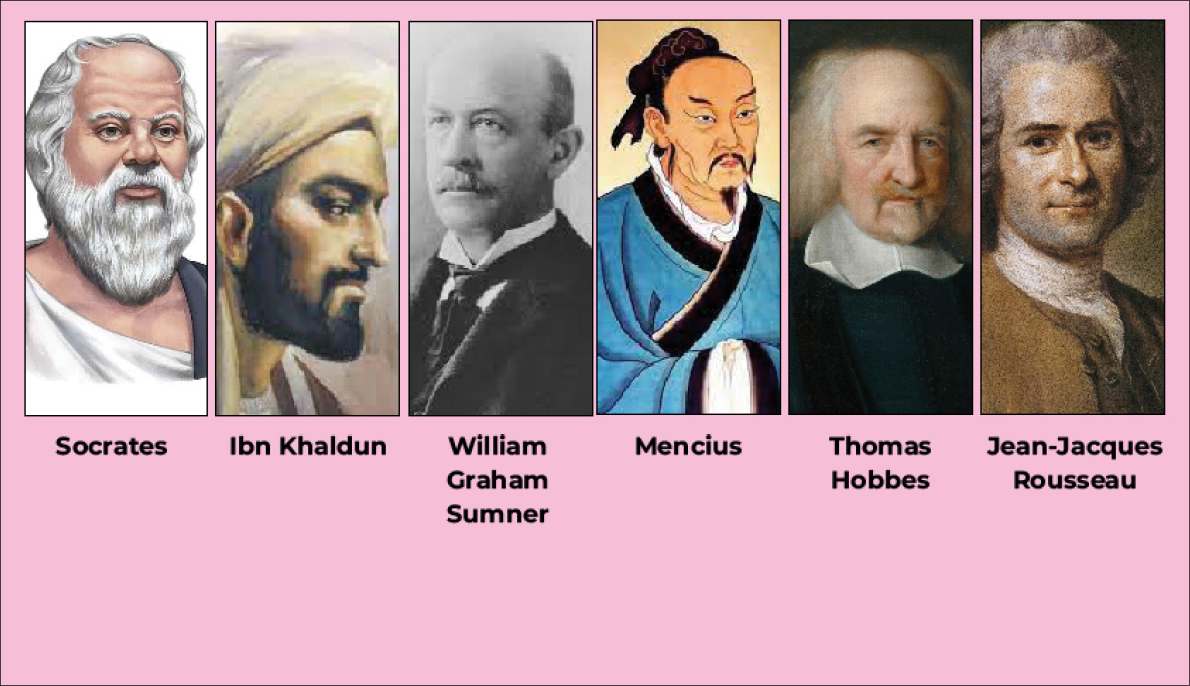What is a Good Society?
In a couple of days, we’re going to have a new president in Asiwaju Bola Tinubu. Also, all states (except a handful) in Nigeria will also swear..

In a couple of days, we’re going to have a new president in Asiwaju Bola Tinubu. Also, all states (except a handful) in Nigeria will also swear in new governors or those coming back for a second term. To mark this change of guards, I’ve decided to ask some smart dead philosophers their view of what a good society was.
Despite their conflicting views, many of them are in agreement that a new society is one that is just, fair, and equitable. It is a society where everyone has the opportunity to reach their full potential, regardless of their social class, race, gender, or religion. It is a society where everyone is treated with respect and dignity.
Different thinkers have different ideas about what a good society is. Here are some of the perspectives of six famous thinkers:
Socrates believed that the purpose of government is to create a just society. He argued that the government should be ruled by philosophers, who are the only people who are capable of understanding what justice is.
- Nigeria loses 965 soldiers, policemen to Boko Haram, IPOB in 2 years
- Use your sermons to fight corruption, Al-Habibiyyah tell imams
“The unexamined life is not worth living.” – Socrates
“The only true wisdom is in knowing that you know nothing.” – Socrates
“To know thyself is the beginning of wisdom.” – Socrates
Mencius, the Chinese philosopher, believed that a good society is one where the people are virtuous. He argued that the government should promote virtue in the people through education and moral suasion.
“The people are the most important element in a nation; the ruler is next.” – Mencius
“Virtue is not something that can be taught; it is something that must be learned through practice.” – Mencius
“The best way to lead people is to lead by example.” – Mencius
Thomas Hobbes believed that a good society is one that is secure. He argued that the government should be strong enough to protect the people from violence and disorder. He believed that the people should submit to a man or a set of leaders called “Leviathan” who are going to take absolute decisions on their behalf. Here are some popular sayings of Hobbes.
“Life in the state of nature is nasty, brutish, and short.” – Thomas Hobbes
“The only way to escape the state of nature is to enter into a social contract.” – Thomas Hobbes
“The sovereign is the ultimate authority in a society.” – Thomas Hobbes
William Graham Sumner was a die-hard libertarian. He believed that a good society is based on individual liberty. He argued that the government should not interfere in the lives of the people, except to protect them from harm.
“The individual is the unit of society, and all social institutions must be based on the individual.” – William Graham Sumner
“The government should not interfere in the lives of the people, except to protect them from harm.” – William Graham Sumner
“The best way to promote social progress is to allow the free market to operate.” – William Graham Sumner
Jean-Jacques Rousseau believed that a good society is one that is based on the consent of the governed. He argued that the government should be created by the people and for the people.
“Man is born free, but everywhere he is in chains.” – Jean-Jacques Rousseau
“The social contract is an agreement between the people and the government.” – Jean-Jacques Rousseau
“The government should be based on the consent of the governed.” – Jean-Jacques Rousseau
Ibn Khaldun, the Tunis philosopher, believed that a good society is one that is stable and prosperous. He argued that the government should promote economic growth and social harmony.
“Civilization is a product of human ingenuity and cooperation.” – Ibn Khaldun
“The state is the product of the natural development of society.” – Ibn Khaldun
“The government should promote economic growth and social harmony.” – Ibn Khaldun
These are just a few of the many different perspectives on what a good society is. There is no one right answer, and the best way to create a good society is to find a balance between the different perspectives.
Here are some specific examples of how these different perspectives can be applied to create a good society:
Socrates’s perspective can be applied by ensuring that everyone has access to education, so that they can learn about justice and make informed decisions about their lives.
Mencius’s perspective can be applied by promoting virtue in the people through education, moral suasion, and social programs.
Hobbes’s perspective can be applied by creating a strong military and police force to protect the people from violence and disorder.
Sumner’s perspective can be applied by limiting the government’s power and protecting individual liberty.
Rousseau’s perspective can be applied by creating a government that is based on the consent of the governed and that promotes the common good.
Ibn Khaldun’s perspective can be applied by promoting economic growth and social harmony.
By applying these different perspectives, we can create a society that is just, fair, equitable, secure, prosperous, and stable.
